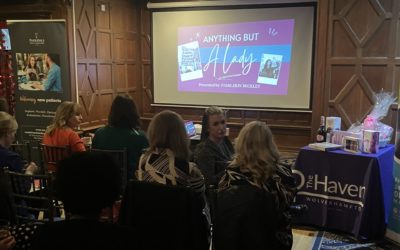Earlier during this Domestic Abuse Awareness month, it was an honour for our Architect of Stories, Pamilerin Beckley to record a Wisdom for Working Mums podcast with Nicky Lowe and domestic abuse survivor Kim* whose story will resonate with many women who are subjected to domestic abuse.
Often when people picture abuse victims they imagine a disheveled-looking person, covered in bruises, breaking down in tears. They imagine scars or some other physical sign of the abuse. Kim’s story definitely wasn’t that.
Her story begins in a seemingly “normal” relationship with a man she met online and fell in love with. She was ambitious, independent, and successful. She met none of the stereotypes that some people tend to associate with victims of abuse. Her story is a common one and we are hopeful that women who can identify with it, will find the courage to seek support.
Before you listen to the podcast below, please remember that if you are in immediate danger, call the police; 999 in the UK.
Below we expound on some of the terminology used in this discussion:
Love bombing: most victims of domestic abuse like Kim* will tell you how amazing the relationship was in the beginning. How there were no red flags that they could identify at the time, and everything seemed so perfect. This is all part of the perpetrator’s tactics to gain the trust of their victims and get them to do what they want. They shower them with lots of attention, compliments, gifts, and affection to make them feel loved, dependent, and obligated, thinking this is how it will always be. But it isn’t.
Isolation: Isolation reduces the chances of victims of domestic abuse getting help and support. It also takes away any opportunity for them to escape from the abuse. It helps disorientate victims and makes them more dependent on the perpetrator. Usually, the degree of power and control over the victim is contingent upon the degree of their physical or emotional isolation.
Gaslighting: When you gaslight someone you manipulate them psychologically; making them doubt their own sanity. But what does it actually sound or look like when you are being gaslit?

Kim* talks about how the perpetrator would gaslight her by moving the microwave around the kitchen to make her think that she was going crazy, in effect distorting her reality, which is an example of coercive control as seen below.
Coercive control: see examples of coercive control as follows:

Coercive control became a criminal offence in the UK in 2015. This means that police and courts can look for patterns of controlling behaviours rather than specific incidents of abuse or violence. If someone is found guilty of this offence they could go to prison for up to five years, receive a fine, or both.
Some of the terminology above and others are covered in our Haven A to Z from our Domestic Abuse Awareness month campaign in 2020. Outside of these terms, there were also some key takeaways worth highlighting:
Love does not hurt. Kim* talks about how this was her “awakening” after watching an advert that said as much. She urges victims to “put themselves first” which is a powerful statement for a survivor to make as most times, women in abusive relationships would do the opposite of that; stay to protect the perpetrator or because they feel breaking up the home might not be good for the children.
Domestic abuse can happen to anyone. This is regardless of their socio-economic status. Anyone can fall victim to a perpetrator of abuse. It doesn’t matter how old, educated or successful you are.
No visible scars. A popular TV presenter once advised that if someone was actually being subjected to abuse, you’d notice “black eyes, cut lips, and the like”. Many believe this. Not only is this misleading, it also invalidates people’s real-life experiences of horrific emotional and psychological abuse. Some will carry their mental scars for a lifetime.
What did you do to make him hurt you? It is dangerous to imply that victims are complicit in their abuse. That is what you do when you pose such a question. Questions like these also shift the blame away from the perpetrator to excuse their behaviour. There is absolutely no excuse for abuse.
Why didn’t she leave? Kim* talks about how leaving didn’t bring her immediate relief. In fact, for her, it was just as scary after she left, as it was while in the relationship. This is not unique. Sometimes it isn’t a lack of willingness. It can be that the victim is financially dependent on the perpetrator or they are terrified of what would happen if they leave. Kim’s perpetrator told her she should be afraid of him. So before you ask this question of a victim, remember insert stat Have some empathy and show compassion. Safety planning advice is available via our helpline for anyone thinking about leaving an abusive relationship. You can also access our safety planning guide here.
Zero tolerance. The whole world needs to become pro-actively zero-tolerance towards abuse and it can start with small individual actions that can help us create a less sexist and more equal society. Alongside the key words in the Haven A to Z. we also share small practical asks that can support this.
Workplace support is crucial. When Kim* said “I needed sleep” and talked about how her colleagues and employers would allow her to sleep in the office, this illustrated a certain level of awareness on their part. In addition to supporting the emotional needs and well-being of employees and colleagues, what practical support can you offer? You can start by believing disclosures of abuse and taking them seriously, being supportive, not dismissive. Most importantly, let them know what support is available. To further explore the three Rs of safeguarding victims, you can attend one of our training sessions or contact training@havenrefuge.org.uk for more information on our bespoke training and advice on workplace policies etc.
Additional resources that you might find useful:
Domestic Abuse Guide: Information to help you recognise the signs of domestic abuse
Safety Planning Guide: Information to consider if you are thinking about leaving an abusive relationship.
Health and Wellbeing Guide: Information to improve your mental health if you are feeling worried and anxious.
Workplace Guide: Information to support employees and colleagues if they disclose abuse.
*Please Note: Kim’s name was changed to protect her identity.



